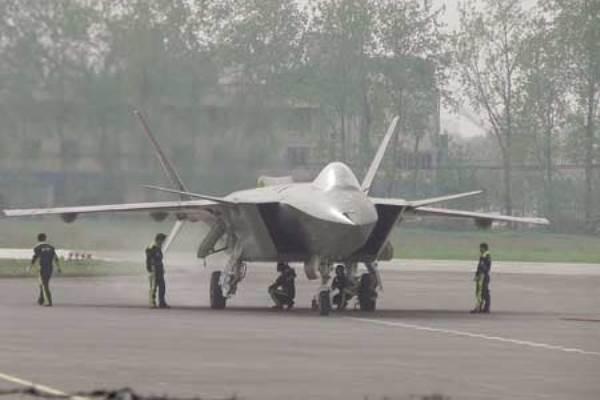A U.S. senator asked Pentagon officials why the government hasn't retaliated against China for copying the designs of its most advanced fighter jets.
Sen. Joe Manchin, a Democrat from West Virginia, said the Chengdu J-20 twin-engine stealth fighter bears similarity to the F-22 Raptor made by Lockheed Martin Corp., while the Shenyang J-31 twin-engine multi-role fighter resembles the F-35 Joint Strike Fighter design also made by Lockheed.
"What they've been able to do in such a rapid period of time without any R&D, do you believe that that gives them a competitive advantage?" Manchin said on Tuesday during a hearing of the Senate Armed Services Committee on cybersecurity.
"I mean, I understand there might be some differences as far as in the software and the weaponry and this and that," he added. "But they're making leaps, which are uncommon, at the behest of us, and we know this, I understand, but we're not taking any actions against them."
Manchin posed the question to James Clapper, director of national intelligence; Robert Work, deputy defense secretary; and Navy Adm. Michael Rogers, commander of U.S. Cyber Command and director of the National Security Agency.
Work acknowledged that the Chinese "have stolen information from our defense contractors and it has helped them develop systems." But he said, "we have hardened our systems."
On Friday, President Obama and Chinese President Xi Jinping pledged to refrain from electronic theft of each other's intellectual property for commercial gain. on Tuesday, Work was careful to characterize the agreement as a "confidence-building measure."
"We are asking them to prove to us that they are serious about what they say about what they will do to control these efforts," Work said.
Manchin didn't seem convinced that the pact would substantially change Chinese behavior in cyberspace.
"I'm saying we know the J-20 is pretty much mirroring our F-22," Manchin said. "We know that their J-31 is pretty much mirroring our F-35. We we know this and the cost to the American taxpayers ... why wouldn't we take hard actions against them? I just don't understand why we wouldn't retaliate from a financial standpoint."
Work replied, "There are a wide variety of cost imposition options that we have. They're developed through the inter-agency and, again, it's not necessarily tit for tat. It is proportional response and we're working through all of those right now."
Clapper then reminded the panel that the Chinese actions in cyberspace amount to cyber-espionage.
"Of course, we too practice cyberespionage," Clapper said. "In a public forum, I won't say how successful we are at it, but we're not bad at it. When we talk about what are we going to do to counter espionage, to punish somebody, or retaliate, I at least think it's a good idea to think about the old saw that people who live in glass houses shouldn't throw rocks."
That comment didn't sit well with the committee's chairman, Sen. John McCain, a Republican from Arizona.
"So it's OK for them to steal our secrets that are most important, including our fighters, because we live in a glass house?" McCain asked. "That is astounding."
Clapper replied, "I'm not saying it's a good thing. I'm just saying that both nations engage in this."
--Brendan McGarry can be reached at brendan.mcgarry@military.com. Follow him on Twitter at @Brendan_McGarry.









